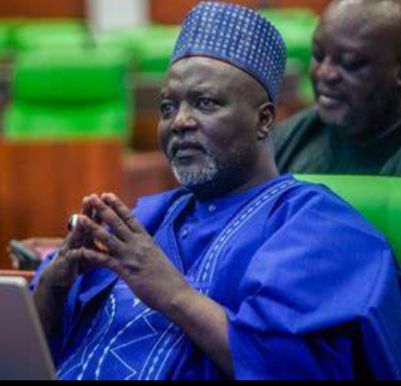Former Deputy Speaker of the House of Representatives, Hon. Ahmed Idris-Wase, on Wednesday, disclosed that individuals linked to Boko Haram and other criminal networks were at some point discovered on official recruitment lists of the Nigerian Army and Police.
At a special plenary session dedicated to reviewing the nation’s worsening security challenges, Wase, who represents Wase Federal Constituency of Plateau State, said the infiltration of security agencies by criminal elements poses a grave threat to national stability.
He hinted that his assertion could be corroborated by former House Committee on Defence Chairman, Hon. Muktar Betara.
The loopholes in Nigeria’s recruitment processes have enabled dangerous individuals to penetrate sensitive institutions meant to safeguard citizens.
“My brother and friend, the former Chairman of Defence, can confirm this. There were times during recruitment exercises when names of Boko Haram members appeared on the list. Armed robbers and criminal gangs were also discovered among those shortlisted for the Army and Police,” Wase told the House.
He implored politicians to exercise responsibility in making recommendations for recruitment, insisting that only persons of integrity and good character should be endorsed.
Wase, who disclosed that he lost a brother, cousin, and nephew to terrorist attacks, said the North Central accounts for 52 percent of the country’s insecurity burden.
He described a heartbreaking request from his younger brother, who pleaded for help to be transferred out of their troubled community.
He also sought a review of the presidential directive withdrawing police from VIP protection roles, noting that while the policy is commendable, proper categorisation is essential to avoid exposing officials to heightened risks.
Hon. Sada Soli (APC, Katsina), who spoke on behalf of the North West Caucus, said the region faces a “complex, multi-layered” security crisis driven not only by criminality but by environmental pressures, governance failures, and economic dislocation.
He emphasized that military solutions alone will not suffice, urging a comprehensive approach combining security operations with social, economic and environmental reforms.
“Long-term peace depends on rebuilding trust in state institutions, reforming land and livestock management, and ensuring communities are active participants in finding solutions,” he said.
Hon. Muktar Betara described the zone as the “epicentre of terrorism, insurgency and recurring communal bloodshed.”
He recalled tragedies ranging from the 2015 Baga massacre to recent IED attacks that have claimed dozens of lives, including military personnel and civilians.
“Our security challenges are enormous, but with coordinated action, political will and strategic planning, we can rebuild public confidence and halt the spread of violence,” Betara stated.
Hon. Solomon Bob criticised successive administrations for lacking the courage to decisively tackle insecurity.
“What we have witnessed since 1999 is failure of leadership. Governments have resorted to appeasing terrorists, negotiating with killers instead of enforcing the law,” he said, warning that mischaracterising terrorism as mere banditry only worsens the crisis.
Chairperson of the House Committee on Women Affairs, Hon. Kafilat Ogbara, lamented the disproportionate impact of insecurity on women and children, describing recent mass kidnappings in Papiri and Kamba as a national calamity.
“These are not just security lapses but violations of the state’s most fundamental responsibility, to protect lives and property,” she added

